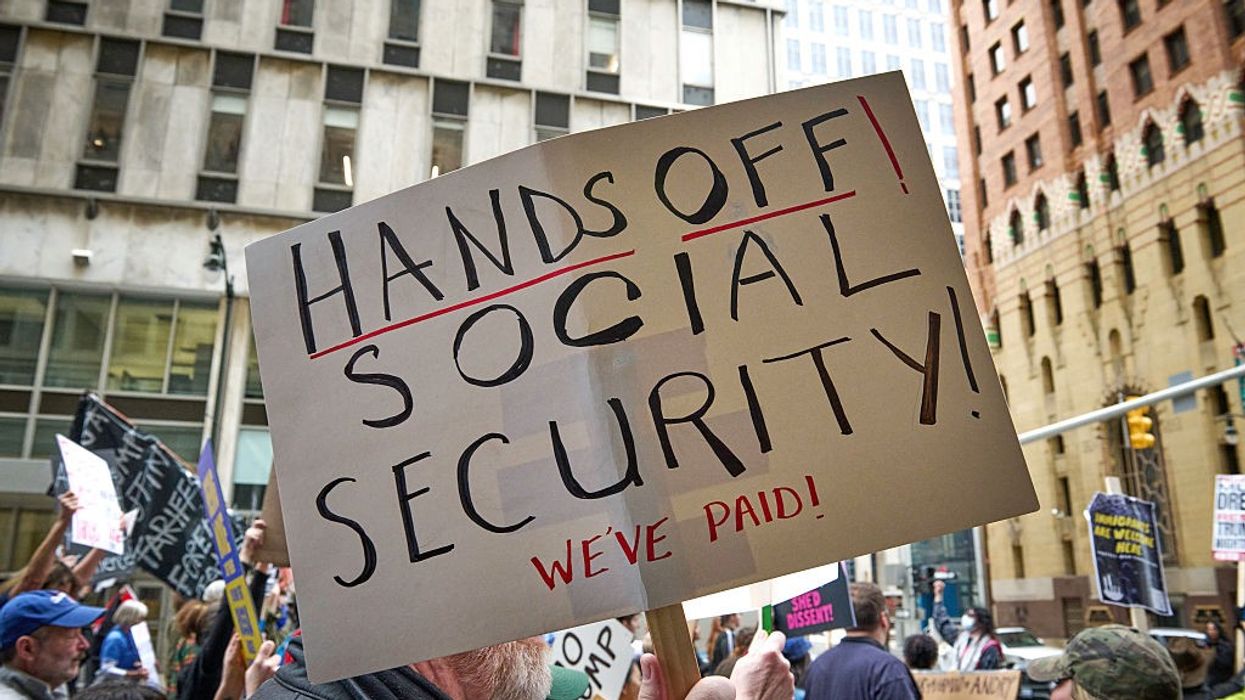According to an analysis released Tuesday by labor policy experts at the Century Foundation—senior fellows Julie Su and Rachel West and director of economy and jobs Andrew Stettner—most of the changes "reverse critical standards that ensure workers get a just day's pay and come home healthy and safe."
In one of the most sweeping changes, the department plans to reverse a 2013 rule that extended minimum wage and overtime protections to home healthcare workers.
These workers, who care for elderly and other medically frail individuals, already make less than $17 an hour on average.
Stettner told Common Dreams that the changes will "suppress wages" and allow agencies to "put the screws on workers to work 50- or 60-hour weeks."
The Trump administration is also rolling back a Biden-era rule that banned bosses from paying subminimum wages to disabled employees.
This discriminatory practice has been on the wane due to state-level bans in 15 states. But in the absence of a federal ban, nearly 40,000 employees—most of whom have intellectual disabilities—still received less than the federal minimum wage as of 2024.
The Century Foundation report says that by ending the rule, the Trump administration would be once again "relegating workers with disabilities to jobs that pay as little as pennies per hour."
The department is also taking a hatchet to workers' rights and safety. Another major change it proposed would do away with protections for seasonal migrant farmworkers under the H-2A visa program who raise complaints about wage and hour violations.
It was commonplace for farm owners to take advantage of these seasonal employees, whose legal status was tied to their work, and who therefore risked deportation if they lost their jobs.
Cases of exploitation, however, declined to an all-time low after the Biden administration introduced the rule, which banned employers from firing, disciplining, or otherwise retaliating against workers who attempted to participate in collective bargaining.
"These reforms protected the rights of farmworkers in the H-2A program to speak out individually and collectively against mistreatment and prevented employers from arbitrarily firing them from their jobs," the report says.
The department also proposed weakening the Occupational Safety and Health Administration's (OSHA) general duty clause, which allows businesses to be punished for putting their employees in dangerous situations. The proposed change would exempt many jobs that are deemed "inherently risky" from protection.
The administration described it as a way to prevent OSHA from cracking down on workplace injuries among athletes and stuntmen.
However, Stettner suggested that the broad language could allow the administration to go much further in defining what is considered "inherently risky." The report notes that the administration is "crowdsourcing" suggestions from employers about what other occupations to exempt.
"The employer community, they're jumping onto this," Stettner said. "They're telling their members to write in to the Department of Labor about other inherently dangerous occupations they should except from the general duty clause."
The authors pointed out that the administration has previously rolled back restrictions meant to protect workers from heat-related stress on the job, which results in more than 600 deaths and over 25,000 injuries each year.
As the administration pushes to expand coal mining, it is also weakening protections for the miners themselves. After laying off most of the employees at OSHA's research arm—which monitors cases of black lung disease—earlier this year, it is now weakening safety requirements to prevent roof falls, mine explosions, and exposure to toxic silica.
"The DOL's role should be to protect the most vulnerable workers: farmworkers, people with disabilities, people that have suffered discrimination," Stettner said. "They're showing their true colors as an anti-worker administration."




